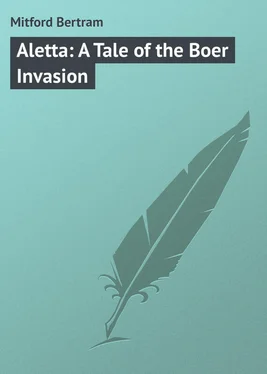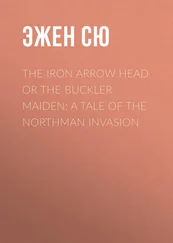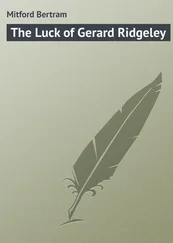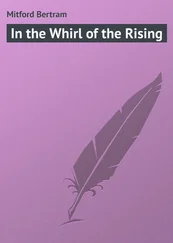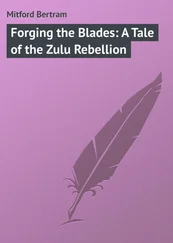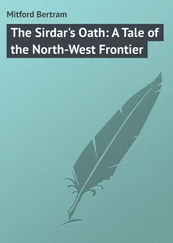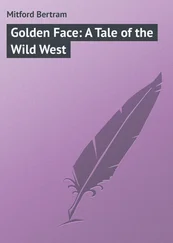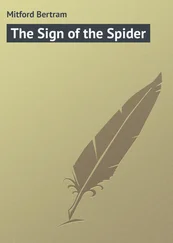Bertram Mitford - Aletta - A Tale of the Boer Invasion
Здесь есть возможность читать онлайн «Bertram Mitford - Aletta - A Tale of the Boer Invasion» — ознакомительный отрывок электронной книги совершенно бесплатно, а после прочтения отрывка купить полную версию. В некоторых случаях можно слушать аудио, скачать через торрент в формате fb2 и присутствует краткое содержание. Жанр: foreign_prose, на английском языке. Описание произведения, (предисловие) а так же отзывы посетителей доступны на портале библиотеки ЛибКат.
- Название:Aletta: A Tale of the Boer Invasion
- Автор:
- Жанр:
- Год:неизвестен
- ISBN:нет данных
- Рейтинг книги:4 / 5. Голосов: 1
-
Избранное:Добавить в избранное
- Отзывы:
-
Ваша оценка:
- 80
- 1
- 2
- 3
- 4
- 5
Aletta: A Tale of the Boer Invasion: краткое содержание, описание и аннотация
Предлагаем к чтению аннотацию, описание, краткое содержание или предисловие (зависит от того, что написал сам автор книги «Aletta: A Tale of the Boer Invasion»). Если вы не нашли необходимую информацию о книге — напишите в комментариях, мы постараемся отыскать её.
Aletta: A Tale of the Boer Invasion — читать онлайн ознакомительный отрывок
Ниже представлен текст книги, разбитый по страницам. Система сохранения места последней прочитанной страницы, позволяет с удобством читать онлайн бесплатно книгу «Aletta: A Tale of the Boer Invasion», без необходимости каждый раз заново искать на чём Вы остановились. Поставьте закладку, и сможете в любой момент перейти на страницу, на которой закончили чтение.
Интервал:
Закладка:
Bertram Mitford
Aletta: A Tale of the Boer Invasion
Chapter One.
Book I – The Transvaal Emissary
The delegate from Pretoria was in full blast.
The long room was packed full – full of male Boers of all ages: that is to say, from those in earliest manhood to the white-bearded great-grandfathers of the community – Boers of every type, Boers hairy, Boers shaven, moleskin-clad and collarless Boers, and Boers got up with near approach to European neatness; Boers small, dark, and wiry, still, after generations, preserving the outward characteristics of their Huguenot and French ancestry; Boers tall, large-limbed, fair, of Saxon aspect and descent.
What sitting accommodation the room held was absorbed by the older of those present, for the patriarchal tradition is very strong among that old-world and conservative race. The residue stood in a closely packed mass, literally hanging on the words of the orator.
The latter was a tall, elderly man, all fire and energy both as to speech and words. His face, strong and bronzed and lined, was of the Roman type, and the brown of his short beard was just beginning to show threads of grey. Standing there in his suit of black broadcloth, his sinewy figure seemed hardly in keeping with such attire. It seemed to demand the easier and more picturesque hunting costume of the veldt. Andries Erasmus Botma was his name, and he ranked among his fellow-countrymen as a “Patriot,” second to none as deserving their closest attention and deepest veneration.
On the table before him stood two lighted candles, throwing out the lines of his strong, rugged countenance, and between them a ponderous Dutch Bible, upon the closed cover of which one great hand constantly rested. On one side of him sat “Mynheer,” as the local predikant , or minister, is commonly known among his flock; on the other Jan Marthinus Grobbelaar – or Swaart Jan, as he was popularly termed – the owner of the farm on which the gathering was taking place. The minister was a puffy, consequential-looking man, with long, shaven upper lip and a light beard cut after the pattern of that worn by the world-famed President, a white tie, reaching nearly from shoulder to shoulder, standing aggressively forth from the clerical black. The farmer was a wizened individual, with a pronounced stoop, and, at first sight, of retiring temperament; but a long nose and deep-set eyes, together with two teeth projecting tusk-like from each corner of the mouth out upon a lank, grizzled beard, imparted to him an utterly knowing and foxy aspect, in keeping with the reputation “Swaart Jan” actually held among his kinsfolk and acquaintance.
The delegate from Pretoria was in full blast. The meeting, which had opened with long prayer by the predikant and a long speech of introduction and welcome from Swaart Jan Grobbelaar, was now just beginning to become of intense interest – to the meeting itself. Beginning far back, with the insurrection under Adrian van Jaarsveldt and the capitulation of the Cape by General Janssens, the orator had hitherto been rather academical. Even the emancipation of the slaves, with its wholly farcical system of compensation, did not appeal over much to a younger generation, to whom it was all ancient history of rather too ancient date. But when he came to the Slagter’s Nek tragedy, he had got his finger on a chord that would never cease to vibrate. The tense attitude of his listeners was that of one mind, of one understanding.
“Brothers,” he went on. “Brothers – and sons – for many are here to-night who are the men of the future – the men of the very near future – to whom the one long life-struggle of their fathers in days of old is but a name; to whom, however, the righting of the wrongs of their fathers is bequeathed; to whom life – yea, even life itself, has been given and allowed by the Lord above that they may carry out the solemn bequest of righteous vengeance which their fathers have handed down to them; that they may have ever before them, ever in their thoughts, the deliverance of this their dear land, their splendid fatherland, from the hated English yoke. You then – you younger men especially – stand up day by day and bless God for the noble privilege which is yours, the privilege of the patriot, of the man who sacrifices all, worldly possessions, even life itself, for the sake of his beloved fatherland. Not many days since I stood upon that spot, that holy ground, where five of your fathers were cruelly done to death for no other crime than repudiating the rule of a bloody-minded king, an English king who was not their king, whose sovereignty they had never owned. There they were hung up to the infamous gallows where they died the most ignominious of deaths, with every circumstance of barbarity which could have been practised by the savage heathen against whom they have ever striven. Standing upon that spot I could see the whole of it again. I could see those five men hauled beneath the English gallows-tree, I could see the brave and noble fortitude wherewith they went to their death. I could see the weeping crowd of their fellow-countrymen – of Our fellow-countrymen – and women – gathered to witness their sufferings. And the five patriots – the five martyrs – were dragged up by ropes to their doom. But, brothers, God intervened. Heaven intervened. Even as the lions’ mouths were shut to Daniel – as the fiery furnace kindled by the idolatrous king passed over the three servants of God unhurt – even so Heaven intervened to render the slaughter instruments of the cruel English king of no effect. The apparatus of death gave way, and the five patriot martyrs fell to the earth unharmed. What then? What then, sons and descendants of those great ones? Did the English recognise the hand of God? Did they recognise that even their puny mockery of justice had to bow before the manifestation of His will? They did not. In the face of the tears and supplications and bitter grief of those who beheld; of those in whose veins ran the blood of the martyred men, those five patriots were once more put through the bitterness of death. This time Heaven did not intervene. And why? In order that the death agonies of those tortured patriots should be held in remembrance; that they should be ever before the eyes of their descendants as an earnest of the death agonies of the hated and hateful race which was their oppressor and is ours. Brothers, I stood upon that ground, that very spot, that holy ground, and I prayed and gained strength that I might fulfil the purpose for which I am here. Slagter’s Nek! The infamous name which was given to that holy spot has gone down to generations in its infamy, and ever will. Is there here a Bezuidenhout, is there a Meyer, is there a Faber, is there a Snyman – yea, and I could name a score of others, a hundred others, a thousand others – in the veins of whom runs the blood of the patriot martyrs? Let them not forget the English butchery of Slagter’s Nek; then, when their rifles are pointing straight, let their watchword be ‘Slagter’s Nek’!”
The speaker paused. Utterly carried away by his own feeling; his whole frame was in a quiver. His eyes were flashing, and the sinews of his great hand resting upon the holy volume leapt out into knots. The predikant , seated at his right, poured out a glass of water from an earthenware carafe on the table, and thrust it into his hand, and he swallowed the contents as with an effort, and in choking gulps. The effect upon the audience was marvellous. Thoroughly overawed, its feeling was expressed by exclamations deep rather than loud, and several of the old men present uncovered – for all wore their hats except the orator himself – and mumbled a fervid prayer. The fact that the historical tragedy had been enacted eighty-three years previously was quite lost to view. It might have taken place yesterday for the effect the recalling of it produced upon the gathering.
Читать дальшеИнтервал:
Закладка:
Похожие книги на «Aletta: A Tale of the Boer Invasion»
Представляем Вашему вниманию похожие книги на «Aletta: A Tale of the Boer Invasion» списком для выбора. Мы отобрали схожую по названию и смыслу литературу в надежде предоставить читателям больше вариантов отыскать новые, интересные, ещё непрочитанные произведения.
Обсуждение, отзывы о книге «Aletta: A Tale of the Boer Invasion» и просто собственные мнения читателей. Оставьте ваши комментарии, напишите, что Вы думаете о произведении, его смысле или главных героях. Укажите что конкретно понравилось, а что нет, и почему Вы так считаете.
